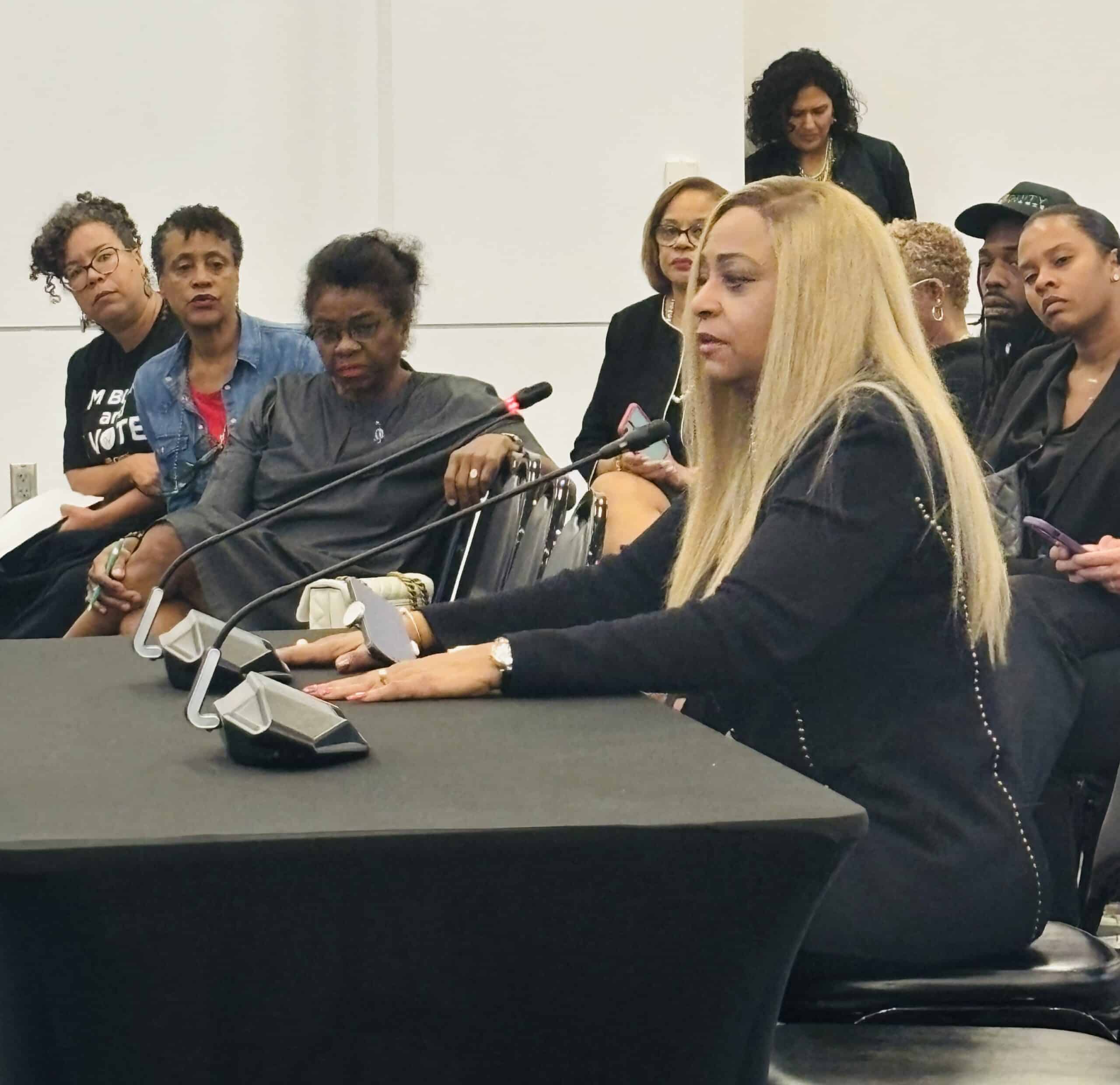Tennessee Legislators Sen. Raumesh Akbari and State Rep. Karen Camper hosted a field hearing at the National Civil Rights Museum on June 17, 2024.
Lawmakers and community leaders gathered at the National Civil Rights Museum on Monday evening for a field hearing titled “Freedom to Be Heard: Memphis Field Hearing” to discuss diversity, equity, and inclusion (DEI) in various sectors.
The hearing was hosted by State Sen. Raumesh Akbari and State Rep. Karen Camper. Other officials hearing remarks included:
- Justin J. Pearson: House member representing District 86.
- Jesse Chism: House member representing District 85.
- Karen Camper: Tennessee House minority leader, representing House District 87.
- Raumesh Akbari: Senate minority leader.
- Sara Kyle: Senator for the 30th District.
For about three hours, the panel heard testimonies from healthcare professionals, educators, business leaders, and activists, highlighting the importance of DEI initiatives and the challenges posed by recent legislative actions. To view the remarks in their entirety, see the clip above. To see specific presenters, see timestamps below. Here are some highlights.
Health Disparities and Systemic Racism
Dr. Michelle Taylor, director of the Shelby County Health Department, opened the hearing with a stark reminder of the health disparities plaguing the county. She attributed these disparities to structural racism and called for Medicaid expansion, revised Clean Air Act laws, and comprehensive sex education to address the ongoing issues.
Corporate Commitment to DEI
Rose Jackson Flenorl, manager of the Global Citizenship Group at FedEx, emphasized the company’s commitment to DEI through partnerships with Historically Black Colleges and Universities (HBCUs) and various global initiatives. “FedEx is dedicated to fostering a diverse and inclusive environment,” Flenorl said, showcasing the company’s DEI strategy.
Supporting Minority-Owned Businesses
Joselle Luster Booker, president and CEO of the Mid-South Minority Business Council, discussed the importance of supporting minority-owned businesses and promoting economic development through DEI initiatives. “Economic inclusion is vital for the growth and sustainability of our communities,” Booker stated.
Challenges in Education
Terrance Gibson, executive director of the Tennessee Education Association, and Tanya T. Coats, president of the association, both addressed the challenges faced by educators due to restrictive legislation. They emphasized the need for supportive policies that foster inclusive education environments.
Inclusive Education and Censorship
Cardell Orrin, executive director of Stand for Children, highlighted the harmful effects of book bans and censorship on inclusive education. “Inclusive education is essential for preparing our children for the future,” Orrin argued.
DEI in Higher Education
Dr. Sherry L. Turner, vice president of strategic initiatives at Rhodes College, provided insight into the college’s DEI efforts and expressed concerns about the impact of anti-DEI legislation on students and faculty. “We must continue to advocate for inclusive excellence in higher education,” Turner urged.
Healthcare and Representation
Dr. Debo Odulana from the University of Tennessee Health Science Center discussed the significance of DEI in healthcare. “Representation in healthcare can improve patient trust and outcomes,” Odulana said, stressing the need for training healthcare professionals in DEI.
Impact of Anti-Immigration Legislation
Monica Newport, chief of staff at Latino Memphis, addressed the negative effects of anti-immigration legislation on the Latino community. “We must protect our immigrant communities from discriminatory policies,” Newport emphasized.
Economic Inclusion and AI Concerns
Gale Jones Carson, interim president and CEO of the Memphis Urban League, spoke about the organization’s mission to empower marginalized communities and raised concerns about the impact of artificial intelligence on job availability and DEI in the workplace. “Economic inclusion must be a priority,” Carson asserted.
LGBTQ+ Rights and Federal Protections
Molly Quinn, executive director of OUT Memphis, highlighted the importance of DEI for the LGBTQ+ community and criticized the inadequate implementation of federal protections. “We must ensure that all individuals are protected and included,” Quinn declared.
Reproductive and Sexual Justice
Cherisse Scott, CEO and founder of SisterReach, discussed the DEI framework in reproductive and sexual justice and condemned attacks on DEI as attacks on Black progress. “We must protect Black-led organizations like SisterReach,” Scott insisted.
Healthcare and Midwifery
Dr. Nikia Grayson, chief clinical officer at CHOICES, underscored the importance of DEI in healthcare and midwifery. She highlighted efforts to diversify and train more midwives and addressed the impact of restrictive state policies on reproductive care. “Healthcare must be equitable and inclusive,” Grayson stated.
Historical Context and Ongoing Struggle
Daphene Rose McFerren provided a historical perspective on civil rights and the ongoing struggle for DEI. She called for a sophisticated strategy to counteract anti-DEI legislation. “We must not let down our future generations,” McFerren urged.
Civil Liberties and Anti-Diversity Legislation
Lucas Cameron-Vaughn, staff attorney with ACLU-TN, discussed the organization’s role in fighting anti-DEI legislation and emphasized the importance of diversity for community strength. “Diversity makes us stronger,” Cameron-Vaughn affirmed.
Supporting Teachers and Education
Gina Tillis from Equity Alliance addressed the critical condition of DEI in education and the importance of supporting teachers and educational nonprofits. “We must prepare our students and teachers to understand and address systemic oppression,” Tillis advocated.
The hearing concluded with a call to action for continued efforts in promoting DEI and addressing the structural barriers that perpetuate disparities in health, education, and economic opportunities. Lawmakers and community leaders vowed to work together to create a more equitable and inclusive society.
Teachers and Education
Gina Tillis from Equity Alliance addressed the critical condition of DEI in education and the importance of supporting teachers and educational nonprofits. “We must prepare our students and teachers to understand and address systemic oppression,” Tillis advocated.
The hearing concluded with a call to action for continued efforts in promoting DEI and addressing the structural barriers that perpetuate disparities in health, education, and economic opportunities. Lawmakers and community leaders vowed to work together to create a more equitable and inclusive society.
(Source: TSD Newsroom)



